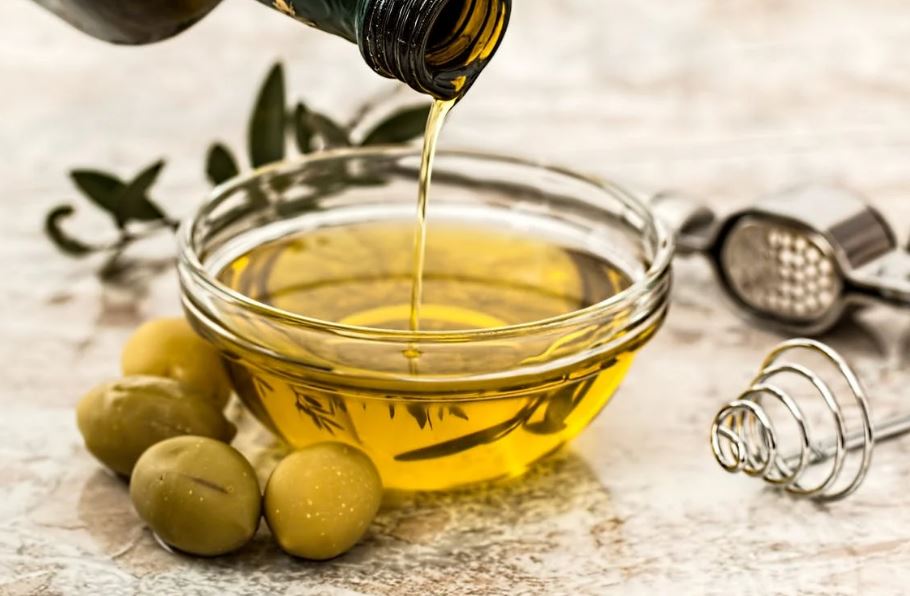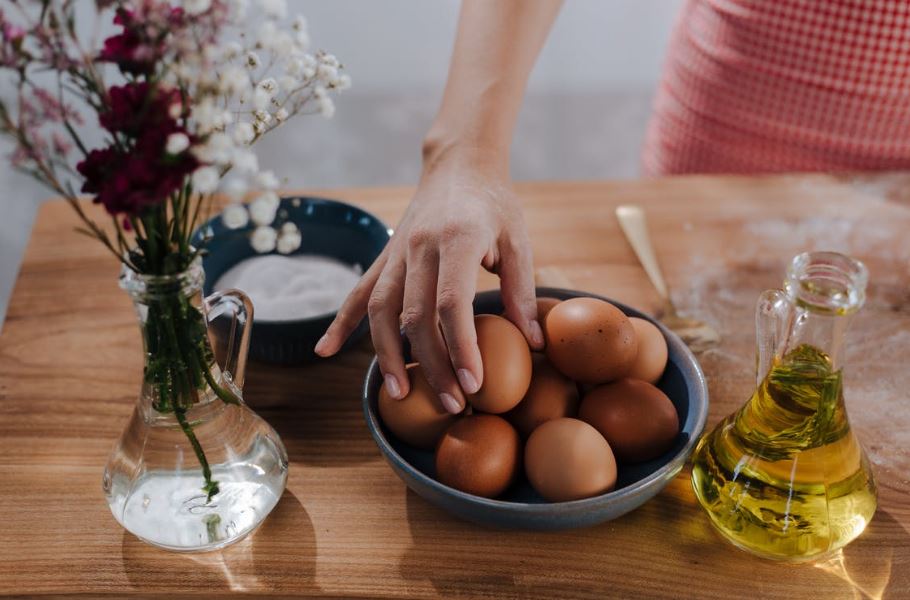Olive oil can be used to treat both humans and animals in addition to cooking. Since ancient times, people have used olive oil as a cosmetic and to speed up skin recovery. The Romans used it as a moisturizer after bathing, while the ancient Egyptians employed it as an anti-wrinkle potion. Olive oil is still a common treatment and preventative measure in many nations today.
Olive oil has excellent health benefits. It is a staple food for some of the healthiest populations in the world and not only contains a ton of healthy fatty acids and potent antioxidants. However, a lot of people think that because it contains unsaturated fat, it can’t be used for cooking. Olives are renowned for their amazing health advantages. Humans have benefited from these advantages for countless years. Even before science could prove olives were healthy, people gushed about them.
Mineral and vitamin content in olives is high. Each of these strengthens your chicken’s defenses and encourages the best egg production just like garlic oil supplements for chickens hence why not give your chickens a treat that is also nutritious if you are going to give them one? The advantages of olives are frequently discussed, but what exactly are they? Let’s examine each and why it’s great for your flock.
Health Benefits of Olives for Chickens
1. Vitamin E
Olives are avoided because of their high vitamin E content. You might question why more people don’t feed their hens olives given the numerous advantages of the only single vitamin. Young hens benefit greatly from vitamin E for their growth. Your hens will mature more quickly and become plumper than birds lacking in vitamin E. You can’t give your chickens too much vitamin E because most meals already include plenty for them. Hens that lay eggs benefit greatly from vitamin E as well. The additional vitamins will benefit your pullets, especially if they are about to lay their first egg. Not to mention that vitamin E is regarded as the magic nutrient for glossy feathers.
2. Iron
Iron is essential for hens that lay eggs. Iron promotes cell growth and boosts oxygen consumption. Your hens will become anemic if they aren’t given enough iron, but too much iron can potentially cause blood poisoning. Although the ideal ratio is required, olive treats won’t make them consume more iron than they need.
3. Calcium
We are all aware that the main component of eggshells is calcium. Most consumers select a calcium-fortified specialty feed for egg-laying chickens. Giving your chickens a few olives is another fantastic approach to supplement their calcium intake. In addition, calcium supports the bones and beaks in chickens of all ages.
4. Antioxidants and Amino Acids
Everyone requires antioxidants for excellent health and a strong immune system. Olives are renowned for having very potent antioxidants. Thus, they qualify as a nutritious treat for your birds.
Everyone associates olives with beneficial lipids and amino acids. These could be just as useful for your chickens as they are for people. Good heart health is supported by healthy fats. The creamiest eggs are also made with amino acids.
Using Olive oil for Chicken with Digestive Problems
If their crop is affected, chickens may benefit from using olive oil. Carefully pry open the chicken’s beak with a little needle or if you are lucky, she will open it for you. Push the syringe slowly so that the oil drips into the mouth. Avoid squirting too hard since you can unintentionally inject some of it into her lungs. After the hen consumes the oil, massage the crop so that it will send the material through to the gizzard, this will aid in breaking up the clump. Further, you may also try some natural chicken care that may be beneficial for your livestock suffering from such health issues.
A Study: University of Bari’Aldo Moro
Researchers at the University of Bari’Aldo Moro’ in Italy decided to incorporate extra virgin olive oil (EVOO) in the meals of laying hens to see if it would affect egg quality based on the findings of previous studies and the fact that the polyphenols in EVOO offer protection against heart disease.
The study examined the effects of dietary supplementing hen feed with extra virgin olive oil (EVOO) from two distinct olive cultivars with varying polyphenol contents on egg quality and egg yolk cholesterol. It was published in the February 2015 issue of the journal Lipids in Health and Disease.
In a groundbreaking study, 150 laying hens were divided into three groups and given regular wheat and soybean meal for 10 weeks with the only variation being the source of oil. For the control or first group, all feeds contained 2.5 percent oil in the form of sunflower oil; for the second group, EVOO from the Cima di Bitonto variety with a low polyphenol content of 38 mg/kg; and for the third group of hens, EVOO from the Coratina variety with a high polyphenol content of 254 mg/kg.
In all three groups of hens, the egg-laying rate, egg weight, and eggshell quality were comparable. However, it was discovered that the number of polyphenols in the feed had an impact on the egg yolk color score, which was highest in eggs from hens fed high-polyphenol EVOO and lowest in eggs from hens fed sunflower oil. The total yolk cholesterol levels of the eggs produced by hens given high polyphenol EVOO were lower than those produced by hens fed low polyphenol EVOO. When compared to cholesterol levels in egg yolks from the control group, the total cholesterol content of egg yolks was reduced by 6.74 percent in hens given high polyphenol EVOO and 4.04 percent in hens fed low polyphenol EVOO.
Furthermore, compared to conventional eggs, eggs from the high polyphenol EVOO group exhibited lower levels of saturated fatty acids, higher levels of polyunsaturated fatty acids, and a superior ratio of saturated to unsaturated fatty acids. As the amount of polyphenol in the diet grew, the atherogenic index likewise declined; it was 0.77 in the egg yolks of hens fed a high polyphenol EVOO diet, 0.86 in the egg yolks of hens fed a low polyphenol EVOO diet, and 1.09 in the control group.
The results of this study suggest that providing laying hens with a diet rich in polyphenol-rich EVOO may result in the production of eggs that are lower in cholesterol and have a better fatty acid profile than standard eggs. According to the study’s authors, such healthier eggs might be advantageous for people’s health.
In summary, the constant use of olive oil may help prevent and treat dietary and health conditions. On top of that, it has potential applications as an anti-inflammatory, anticancer, antibacterial, hepatoprotective, reno-protective, and anti-neurodegenerative agent. However, more research is needed to better understand the biological actions of olive oil and the chemicals obtained from it in poultry to enhance bird health and produce richer products.



